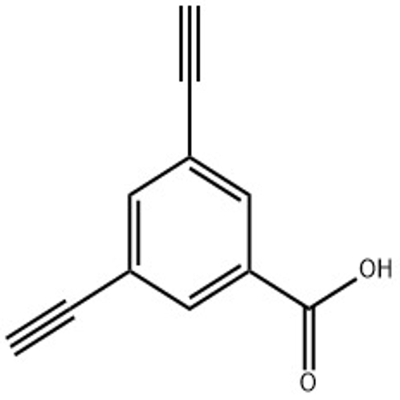-
Categories
-
Pharmaceutical Intermediates
-
Active Pharmaceutical Ingredients
-
Food Additives
- Industrial Coatings
- Agrochemicals
- Dyes and Pigments
- Surfactant
- Flavors and Fragrances
- Chemical Reagents
- Catalyst and Auxiliary
- Natural Products
- Inorganic Chemistry
-
Organic Chemistry
-
Biochemical Engineering
- Analytical Chemistry
-
Cosmetic Ingredient
- Water Treatment Chemical
-
Pharmaceutical Intermediates
Promotion
ECHEMI Mall
Wholesale
Weekly Price
Exhibition
News
-
Trade Service
As of July 27, 2020, more than 16.25 million cases of newly crown pneumonia (COVID-19) have been confirmed worldwide, bringing the total number of deaths to more than 640,000.
it takes 12 to 18 months to develop a targeted vaccine without considering the new coronavirus SARS-CoV-2 mutation, while it can take more than 10 years to develop and approve new antiviral drugs from scratch.
re-screening tests for drugs that have been clinically evaluated to treat COVID-19 are one of the most feasible and effective strategies available today.
July 24, 2020, a team of researchers from the Sanford Burnham Prebis Institute for Medical Discovery in the United States and the University of Hong Kong in China published their latest findings in Nature on the treatment of COVID-19 drugs, identifying 100 small molecules that inhibit SARS-CoV-2 replication, including 21 known drugs that exhibit a significant dose-response relationship, and 13 molecules that can be treated in patients with a dose-suppressing viral replication.
the replication of cysteine protease inhibitors MDL-28170, ONO 5334 and apilimod in human iPSC-derived lung cell-like cells, apilimod also showed antiviral efficacy in primary human lung transplant models.
to develop the therapies for COVID-19, researchers have established a small molecular drug pool containing 11987 small molecular drugs that are clinically in clinical or FDA-approved, and by using these small molecular compounds to treat VEro E6 cells infected with SARS-CoV-2 (the epithelial cells of the kidneys derived from African green monkeys) to assess their potential antiviral activity against SARS-CoV-2.
, the researchers screened 100 compounds to inhibit at least 40 percent of viral replications, including viformacid receptor agonists (LGD-1550, via acid, thabaratin, Avi A, thajaratin, RBAD aldosof reductase inhibitors AL3152, benzodiazepine seisizers (ZK-93426, Zalaplon GR, Pagoron) and antimalarial drugs (AQ-13, hanfangchin A), etc.
high-throughput screening of SARS-CoV-2 antiviral drugs taking into account the expected therapeutic dose of these drugs, the researchers conducted dose reaction analysis to determine the relationship between compound concentration and antiviral activity.
found that 21 compounds, including Redsewe, had significant dose-dependent antiviral activity.
testing whether these drugs in-existing dose responses have a potential synergy with Redsivir in the antiviral action, screening four compounds have significant synergies with Redsivir, which is currently regulated for COVID-19 treatment.
the dose-response relationship of the selected antiviral drug and its synergy with Redsewe, the researchers further evaluated the effectiveness of the 21 compounds on two other human cell lines that can be infected with SARS-CoV-2, and found that 19 of them inhibited viral replication in one or both cell lines, with efficacy equal to or greater The effectiveness of Vero E6 cells, 13 compounds can be in at least one cell line in the body can be achieved dose-suppressing virus replication, of which the five most effective inhibitory viruses are apilimod, VBY-825, ONO 5334, Z LVG CHN2 and MDL 28170.
it is necessary to evaluate the efficacy of the drug in different and appropriate models, so the researchers further assessed the antiviral activity of the most viral on-virus ONO 5334, MDL 28170 and apilimod in human iPSC-derived lung cell-like cells, and found that the virus replication of these primary cell types decreased significantly after antiviral drug therapy, the number of infected cells treated by ONO 5334 decreased by 72%, and MDL 28170.
re-evaluated the antiviral activity of the most powerful apilimod in the outliopulmonal culture system and found that it was effective against the SARS-CoV-2 replication of the virus replication in the main tissue. "This study greatly expands the treatment options of patients with COVID-19, as many of the small molecules screened already have human clinical safety data that could help control the global pandemic of COVID-19," said Suit K. Chanda,
's report on the evaluation of antiviral activity in human cell models.
References: Discovery of SARS-CoV-2 antiviral drugs through-scale compound repurposing.







